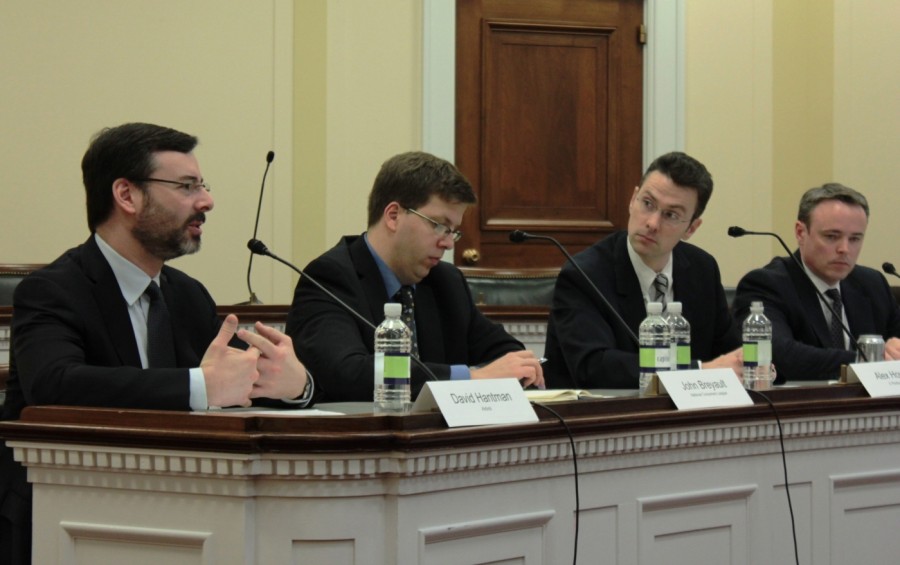WASHINGTON – “Sharing is caring,” a motto taught to school children, is now weaving its way through society, allowing consumers to share anything – from transportation to food – via their mobile devices.
But when rape claims against Uber start to appear or liability cases spring up with Airbnb, the lack of regulation or guidelines in this new sharing economy becomes apparent.
The Congressional Internet Caucus held a discussion Monday about what role Congress should have in the sharing economy.
Uber, a ride sharing service, and Airbnb, which allows hosts to rent out a room in their apartments or homes, allow consumers to link to providers via apps on their phones.
Alex Howard, columnist for TechRepublic, said that regulating activity on these services is challenging.
“People have always bartered their time and resources for other things. The problem here is bringing that to an app,” Howard said. “Is that something that needs to be regulated in some way?”
Both were founded in San Francisco, Uber in 2009 and Airbnb in 2008. Uber operates in 200 cities, and Airbnb has hosted 25 million guests in 190 countries.
Uber has come under scrutiny recently after the company’s chief executive said he had followed journalists using the data collected by the Uber app’ record of their rides. Uber was banned in New Delhi after a rape claim and has been sued by the city of Portland, Ore., after operating there when the company was told not to.
Uber is also banned in Thailand and Spain.
Airbnb has also had some problems with liability claims.
Hosts are responsible under their primary insurance if room is destroyed or a wine stain is found on the carpet. But if that’s not enough, secondary insurance provided by Airbnb kicks in.
Airbnb has faced issues in New York, where the law prohibits apartment tenants from renting their units out to others for less than 30 days. The argument is the apartments become illegal hotels.
Airbnb turned in its data on hosts to the state attorney general.
“Consumers want a more personal story, and we need to focus on the regular people who use this service instead of those who do this for a living,” David Hantman, head of global public policy at Airbnb, said. “There are those people doing the wrong thing, and we need to protect those who are doing the right thing.”
John Breyault, National Consumers League vice president, said that most platforms ask the consumers to rely on their personal insurance first if they are injured.
“What it really comes down to is if consumers are being protected enough when using these platforms,” he said.
Breyault said there have been cases with Uber and the passenger’s insurance. Ideally, if a passenger is injured in an accident, Uber should pay for damages and medical expenses. However, the opposite has been happening, leaving passengers to present claims to their own insurance companies or to pay out of pocket.
“That’s an issue that needs to be looked at in more detail. What really strikes me is the lack of good data out there,” Breyault said.
Breyault said he is having a hard time getting reports about complaints made to the D.C. Taxicab Commission about cars that are poorly maintained or people who are not getting picked up. Without the data, he can’t gauge consumer satisfaction or think about if or how the services should be regulated.
“That’s where I want to start – how we make this data more available,” he said.
Arun Sundararajan, professor of information, operations and management sciences at New York University Stern School of Business, said that since society is transitioning to peer-to-peer services, the market may be able to do some things that the government was needed for previously.
“If you have a platform between the driver and consumer, you have a new entity,” Sundararajan said. “We should wait and see what the market actually provides, and then reframe our regulations so the government’s intervention is surgical. It’s there to correct market failures. It’s not there when the market is taking care of itself.”
None of the speakers wanted immediate action.
“Congress should care but forbear,” Howard said.
Reach reporter Lorain Watters at [email protected] or 202-408-1494.











